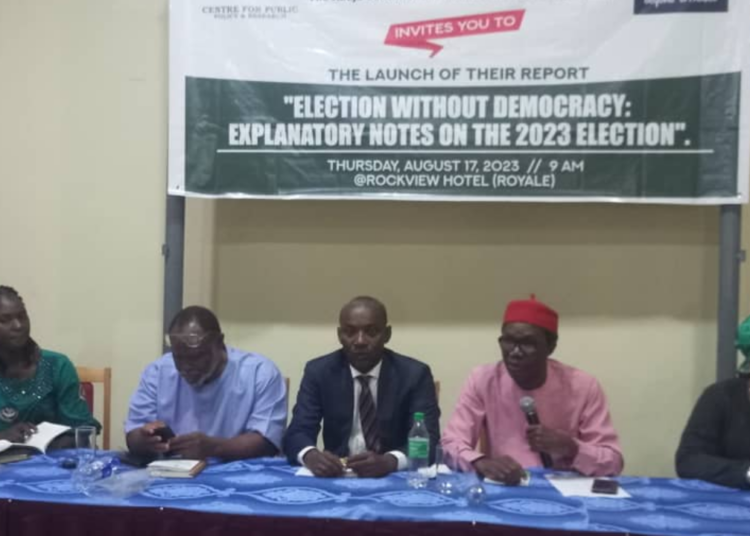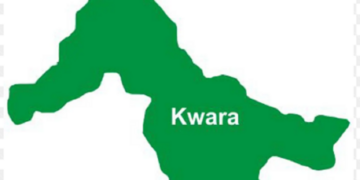The director of the Abuja School of Social and Political Thought (ASSPT) in Nigeria, Dr Sam Amadi, has advocated for the judiciary to take a stern stance on electoral offenders and electoral fraud.
Amadi made the call at the launch of a report, “Election without Democracy: Explanatory Notes on the 2023 election,” by The Center for Public Policy and Research, CPPR, in partnership with the Abuja School of Social and Political Thought, in Abuja yesterday.
He called for stricter penalties for electoral misconduct compared to other criminal activities, citing the growing concern over fraudulent practices during elections.
Highlighting the significant risk that electoral fraud poses to the nation’s democratic foundation, Amadi stressed the importance of deterring potential wrongdoers by imposing more severe consequences for their actions. He underscored the pressing need to safeguard electoral integrity and rebuild public confidence in the electoral system.
Speaking out against the perceived lack of democracy, fairness, and credibility in the 2023 election, he said: “First, the court should cancel the results. If the court cancels the results then it will be sending the message and creating incentive for INEC and positions to do more because if you’re going to bribe INEC with 2 billion, and bribe security with 2 billion, then the court is going to cancel it.
“So, why will you do that again? It is the court that has the responsibility to cancel results and when they do that then it creates a new incentive.
“Two, you have to change the appointment of INEC officials and not just appointments, you also have to create an INEC with regulatory capability. INEC job is not a money making job. It is regulation. It is just like working as a regulator in America. It ensures that politicians don’t cheat.
“And the third is to penalize electoral fraud more than any other crime. So, it’s like, don’t put the death penalty on someone stealing money, put the death penalty on someone rigging elections. The elections failed because politicians deliberately rigged with INEC.”
He said Nigerians will vote simply and go home if they are confidence of the system.
On his part, a distinguished fellow, Professor Udenta O. Udenta, said: “The electoral process and the practice of that election was devoid of democratic practices and values.
“Brilliantly pointed out by the director of the school during his presentation, if you plan to fail, not the political class, not observers, not the voters, but INEC itself planned to fail by not honouring democratic precepts, values and norms. We are actually building a democratic infrastructure that is devoid of democratic values.”
He, however, highlighted the urgency of addressing the deep-rooted issue of electoral fraud, which, according to him, has plagued Nigeria’s democratic progress for years.
Citing the importance of credible elections in sustaining democracy, Udenta, urged the judiciary to play a more assertive role in combating this menace.





